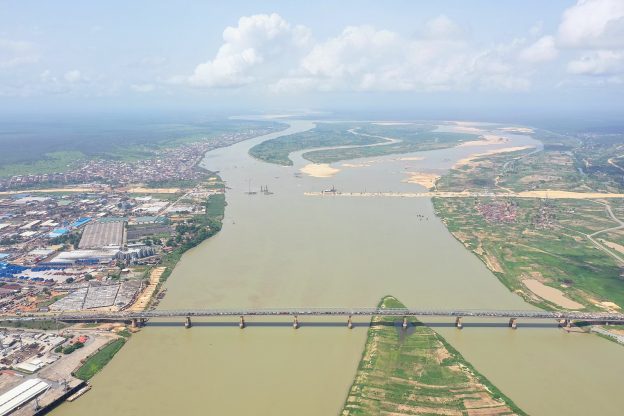
The abyss of Nigerian waterways
Nigeria’s waterways, once seen as a promising avenue for economic development and connectivity, have increasingly become scenes of tragedy and peril. The escalating frequency of accidents on these vital routes underscores the urgent need for comprehensive reform in safety practices, infrastructure, and regulatory oversight.
Recent years have witnessed a disturbing rise in mishaps involving both passenger boats and cargo vessels. These incidents often result in devastating loss of life and significant property damage. One recent example of such a tragedy occurred on August 27, 2024, when a canoe capsized in Gantsa town, Buji Local Government Area of Jigawa State. The boat, carrying five individuals, was attempting to cross a flood-submerged road when it overturned, leading to the immediate drowning of all aboard.
The victims, identified as Lurwanu Adamu, Idris Abubakar, Fiddausi Dahiru, Ramla Nura, and Usman Adamu, were confirmed dead upon arrival at Gantsa Cottage Hospital. This incident highlights the dire consequences of inadequate safety measures and infrastructure.
The root causes of these accidents are seemingly endless and deeply entrenched, reflecting broader systemic failures. Among the primary issues is the lack of rigorous enforcement of safety standards. Many boat operators routinely overlook essential safety measures, such as providing life jackets or maintaining their vessels in good condition.
This neglect is largely due to insufficient oversight and the weak enforcement of existing regulations. Moreover, overcrowding remains a persistent problem, with vessels frequently carrying far more passengers than their capacity allows, thus heightening the risk of capsizing.
The deteriorating state of waterways infrastructure exacerbates the problem. Many ports and jetties are in disrepair, lacking basic facilities and maintenance. This neglect compromises safety and operational efficiency. Additionally, the absence of modern navigation aids and communication systems increases the risks, especially during adverse weather conditions.
The human toll of these accidents is profound. Families are devastated by the loss of loved ones, and survivors often face severe physical injuries and emotional trauma. The economic repercussions are also significant, as accidents disrupt livelihoods, strain healthcare systems, and place additional burdens on emergency services.
To address this crisis, a multifaceted approach is required. Strengthening the regulatory framework for waterways transportation is crucial. This involves not only enforcing existing safety standards but also conducting regular inspections of vessels and imposing stringent penalties for non-compliance.
Investment in modernising waterways infrastructure is equally important. Upgrading ports and jetties, installing advanced navigation aids, and developing reliable communication systems are essential steps toward improving safety. Public awareness and training are also vital. Educating boat operators and passengers about safety practices and emergency procedures can significantly reduce the risk of accidents.
Improving emergency response capabilities is another critical measure. Equipping rescue teams with the necessary tools and resources to handle maritime emergencies will enhance their ability to respond effectively. Also, fostering collaboration between government agencies, private operators, and local communities can lead to a more unified approach to addressing the challenges facing the waterways sector.
The ongoing crisis of waterways mishaps should not be so commonplace in this age for a country that calls itself the ‘Giant of Africa.’ This demands immediate and sustained action. In fact, we are in a state of emergency.
By addressing regulatory shortcomings, investing in infrastructure, and prioritising safety, we can transform our waterways from a source of Shakespearean tragedies into a model of safe and efficient transportation. The well-being of countless individuals and the economic vitality of the nation depend on our collective efforts to tackle this issue comprehensively.




